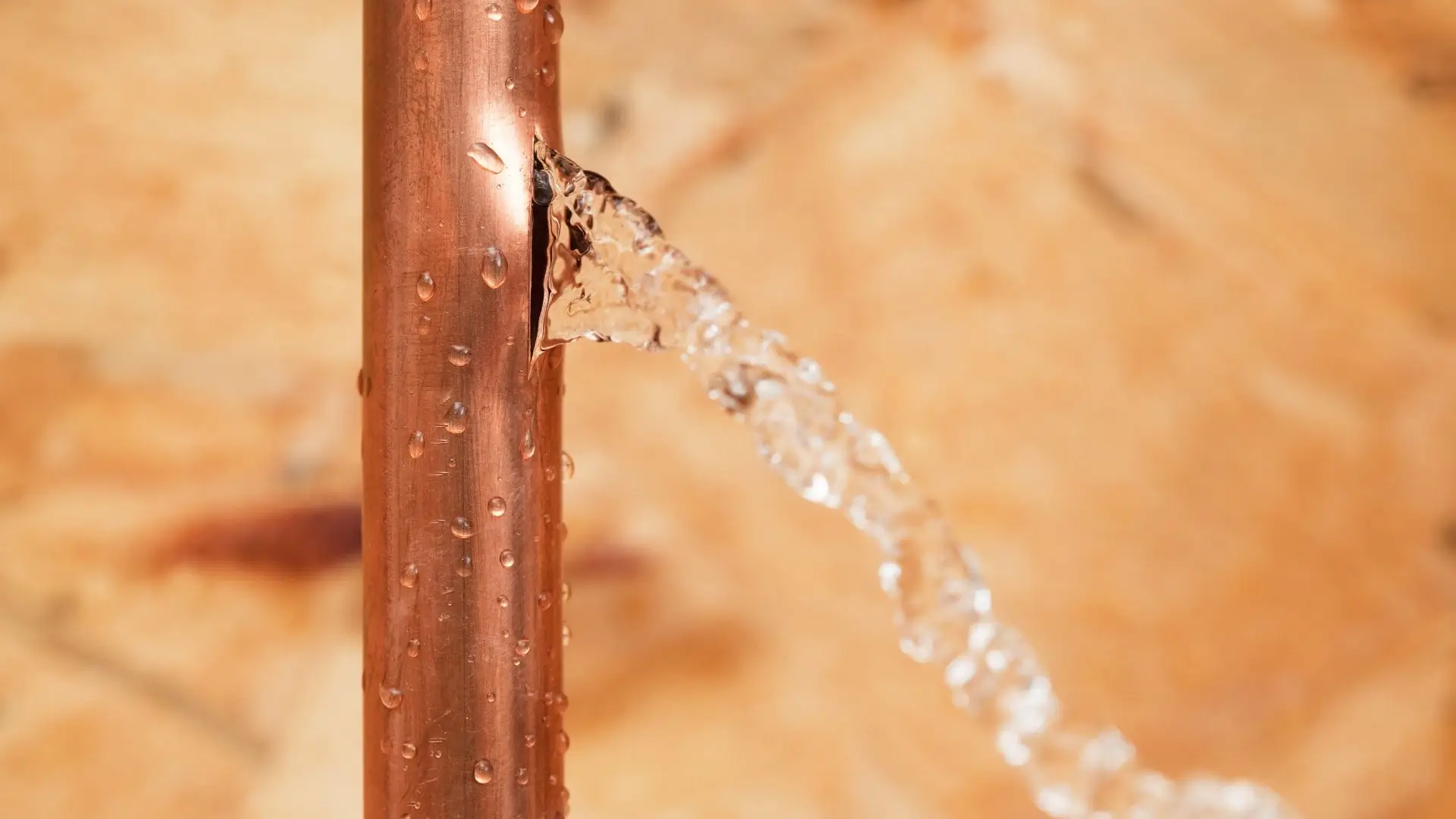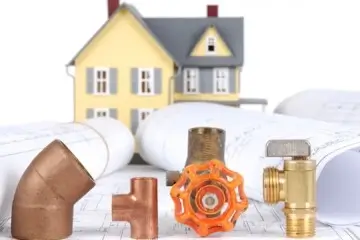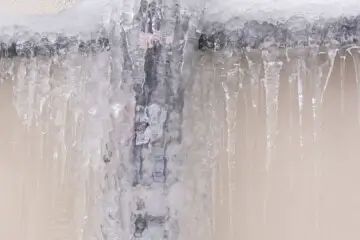Proper pipe insulation is crucial to prevent frozen pipes this winter. Insulate water supply pipes to avoid freezing. CAN Plumbing and Drainage in Mississauga provides professional services for thawing frozen pipes. Maintaining smooth water flow during winter is essential. Our skilled team ensures a stress-free winter by addressing all pipe needs. Prevent clogs by maintaining the plumbing system. Allow faucets to drip in cold weather to prevent freezing. Insulate water pipes in unheated areas. Avoid using hot water on clogged pipes. Thaw pipes with a hairdryer or heating pad. Safeguard your plumbing system from freezing temperatures. Contact us for expert assistance in managing pipe-related issues.
Contact CAN Plumbing and Drainage for all your Pipe Needs
Ensuring your pipes are well-maintained and protected during winter is crucial. To prevent frozen pipes, proper insulation is key, especially for water supply pipes in cold weather. At CAN Plumbing and Drainage in Mississauga, our skilled team can help safeguard your pipes by offering professional services to thaw frozen pipes and provide maintenance advice. We understand the importance of keeping your water flowing smoothly throughout the winter, and our experts are ready to efficiently address any pipe-related issues. Trust CAN Plumbing and Drainage in Mississauga to meet all your pipe needs and ensure a stress-free winter with properly functioning pipes.

CAN Plumbing and Drainage Services Related to Pipes
At CAN Plumbing and Drainage in Mississauga, we specialize in addressing two common pipe issues: clogged pipes and frozen pipes. Our licensed plumbers in Mississauga is experienced in diagnosing and resolving these problems efficiently to prevent further damage to your plumbing system. Contact us today for expert assistance in maintaining the health of your pipes throughout the winter season.
Clogged Pipes
During the winter months, it’s crucial to maintain your plumbing system to prevent clogged pipes. Clogs can lead to serious issues like burst pipes when water freezes and expands. To avoid freezing and clogging, consider letting your faucets drip during very cold weather. This continuous flow can help prevent ice blockages. Insulating water pipes in unheated areas of your home is also essential to protect them from freezing and potential clogs. If you encounter a clogged pipe, refrain from using hot water to avoid bursting the pipe. Instead, try thawing the pipe with a hairdryer or heating pad while taking care to protect your pipes from further damage.

Frozen Pipes
Taking essential measures to prevent frozen pipes is crucial for maintaining the integrity of your plumbing system during the winter months. When temperatures drop, pipes can freeze, leading to the risk of a burst pipe and potential water damage in your home. To prevent your pipes from freezing, insulate them in vulnerable areas such as attics, basements, and crawl spaces. If a pipe does freeze, you can try to thaw it using a space heater or towels soaked in hot water. It’s important to act quickly to avoid a burst pipe. By being proactive and taking these steps, you can protect your plumbing system from the dangers of freezing temperatures.

Keep Interior Temperature Consistent
Maintaining a steady interior temperature is crucial to prevent frozen pipes during the winter months. To avoid pipes from freezing, it’s important to heat the frozen areas by adjusting the thermostat to a consistent temperature. Ensure that heat circulates evenly throughout your home to protect your pipes from freezing. Allowing the cold water to drip from faucets can also help prevent freezing by relieving pressure in the pipes. By keeping the interior temperature stable, you create a warm environment that discourages frozen pipes. Remember, even small temperature fluctuations can lead to frozen pipe issues, so maintaining a consistent heat level is essential to safeguarding your plumbing system during the winter.
Seal Cracks and Openings
Let’s take a proactive approach to prevent frozen pipes this winter by sealing cracks and openings in your home. Cold air entering through these openings can lower the temperature around your plumbing, increasing the risk of pipes freezing. Inspect areas where pipes are located, such as under sinks and in basements, and use caulking or insulation to seal any cracks. By addressing these areas around doors, windows, and foundation walls, you can help maintain a warmer environment and protect your water supply. These simple steps can significantly reduce the chances of your pipes freezing and bursting, saving you from costly repairs and water damage in the future.

Disconnect and Drain Outdoor Hoses
To prevent potential damage from frozen pipes this winter, it’s crucial to disconnect and drain outdoor hoses before temperatures drop below freezing. When water freezes, it expands, which can lead to pipes in your home bursting. Begin by turning off the outdoor faucet and disconnecting the hose. Let any remaining water drain completely from the hose and store it in a warm place to prevent freezing. Additionally, you can open cabinet doors under sinks to allow warm air to circulate around pipes. By taking these steps, you can help prevent frozen pipes and avoid the need to call a plumber for repairs due to cold weather.
Insulate Exposed Pipes Properly
When preparing to insulate exposed pipes, it is crucial to remember to disconnect and drain outdoor hoses. This simple step is essential in preventing frozen pipes during the winter months. Frozen pipes can lead to the expansion of ice and potential bursts, causing costly damage. Proper insulation is key to avoiding water pressure buildup and pipe bursts. By using pipe insulation to keep the pipes above freezing temperatures, you can prevent water from freezing inside them. This proactive measure helps safeguard your plumbing system and maintain water flow, ensuring a smooth operation even in the coldest winter conditions.
Allow Faucets to Drip
We suggest allowing faucets to drip during extremely cold weather to prevent pipes from freezing and potentially bursting. When temperatures drop, letting a small amount of water run through the faucet helps prevent water pipes from freezing. This continuous flow of water can relieve pressure in the pipes and reduce the likelihood of them freezing. It’s also advisable to turn off the main water supply if you’ll be away from home for an extended period. Additionally, keeping your pipes insulated and opening kitchen and bathroom cabinet doors to allow warm air to circulate around the pipes can further prevent freezing. This simple step can be particularly vital for homes with plastic pipes that are more susceptible to cold temperatures.
Frequently Asked Questions About Pipes Near Me
How Do I Know if My Pipes Are at Risk of Freezing?
To check for freezing risks, you can feel exposed pipes for coldness and look for frost accumulation. Warning signs include reduced water flow, strange noises, or visible cracks. Preventive measures involve insulating the pipes, keeping faucets dripping, and using heat tracing methods.
Are There Any Specific Types of Insulation That Are More Effective at Preventing Frozen Pipes?
Foam and fiberglass insulations are known to be more effective in preventing frozen pipes. However, for optimal protection, it is advisable to seek professional advice tailored to your specific situation.
Can I Still Use My Outdoor Hose in the Winter Even if I Disconnect and Drain It?
Even if you disconnect and drain the outdoor hose in winter, it’s best to avoid using it. Cold temperatures can still cause any residual water in the hose to freeze, which may lead to potential damage.
What Should I Do if I Suspect My Pipes Are Already Frozen?
If there is a suspicion that the pipes are frozen, immediate action is necessary. Start by turning off the water supply, opening faucets to relieve pressure, and applying gentle heat using a hairdryer or towels soaked in hot water. If needed, contact a professional for assistance.
Are There Any Warning Signs to Look Out for That Indicate My Pipes Are Close to Freezing?
Watch out for signs such as reduced water pressure, strange noises from pipes, or visible frost on exterior pipes. These indicators suggest that pipes may be close to freezing, so immediate action is necessary to prevent damage.
Please rate our website
Let us improve this post!
Tell us how we can improve this post?


